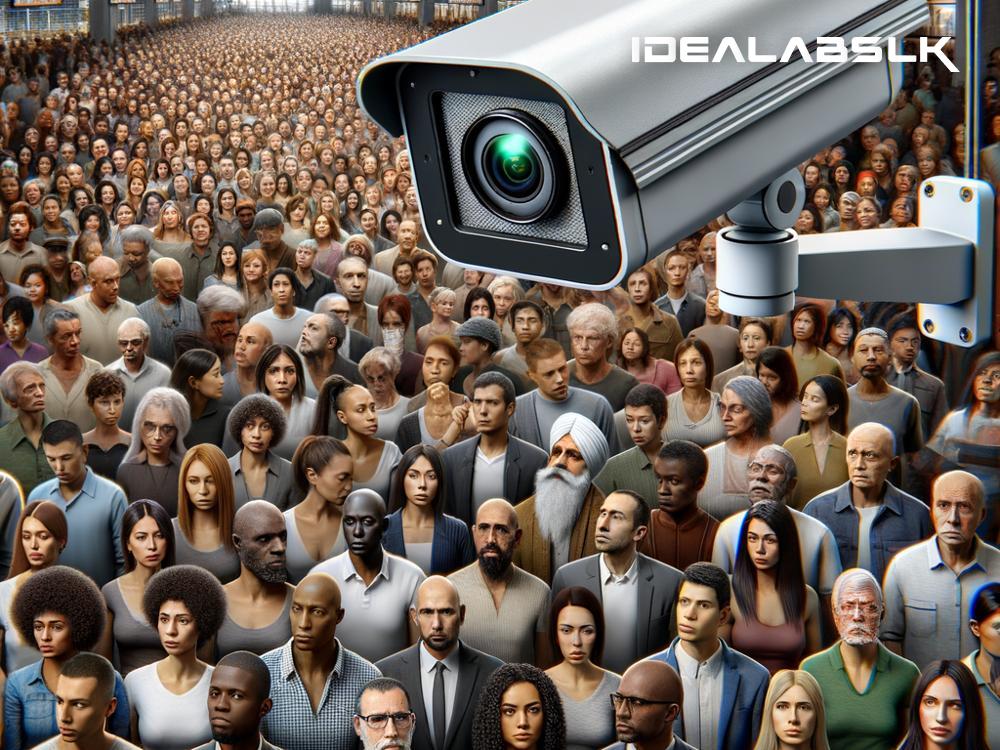The Ethics of Facial Recognition in Security Solutions: Navigating the Fine Line
In recent years, facial recognition technology has vaulted from the stuff of sci-fi movies into our everyday lives. It's not just unlocking smartphones or tagging friends in social media photos anymore; this technology is increasingly used in security solutions. From airport security lanes to city-wide surveillance systems, the use of facial recognition is growing. But as it spreads, so do the ethical considerations and debates surrounding it. Let's delve into the ethical maze of facial recognition in security solutions, aiming to understand why it's a topic worth examining closely.
Firstly, what exactly is facial recognition? Put simply, it’s a type of technology that can identify or verify a person's identity using their face. It can be used for various purposes, from unlocking phones to identifying suspects in a crowd. The allure of using facial recognition in security is clear: it promises a quicker, more efficient way to keep people and places safe. However, this comes with a bouquet of ethical questions that we can't afford to ignore.
Privacy Concerns: The most glaring ethical concern revolves around privacy. When facial recognition is used in public spaces, individuals are often unaware that they are being scanned, raising significant questions about consent. Is it right to track and identify people without their explicit approval? This concern is particularly prickly because, unlike other identifiers (like a password or a card), you can't exactly leave your face at home. The pervasive nature of facial recognition technology means that, potentially, everyone's privacy could be compromised.
Bias and Discrimination: Another critical issue is the potential for bias and discrimination. Numerous studies have shown that some facial recognition systems are more accurate in identifying faces of certain racial groups over others. This discrepancy raises the possibility of discrimination and wrongful identification, particularly for minorities. The ramifications are grave, including the potential for unjust surveillance and legal consequences based purely on flawed technology.
Security vs. Freedom: At the heart of the debate is the balance between security and individual freedoms. While proponents argue that facial recognition enhances security and safety, detractors worry about the slippery slope towards an intrusive surveillance state. The challenge is finding a middle ground that safeguards public safety without trampling over personal freedoms.
Accountability and Transparency: Who is responsible when things go wrong? The use of facial recognition in security solutions begs the question of accountability. If someone is mistakenly identified and faces consequences as a result, who is held accountable? Moreover, there's a need for transparency about how the data is used, stored, and protected. Without clear answers to these questions, trust in the technology and those who wield it will remain shaky.
So, what's the way forward? The issues surrounding facial recognition in security solutions are complex, but not insurmountable. It starts with a robust conversation about ethics, privacy, and the kind of society we want to live in. Here are some steps that could be taken to navigate these ethical challenges:
-
Regulation and Oversight: Implementing strict regulations that govern the use of facial recognition technology, particularly in public spaces, is crucial. These regulations should ensure transparency, consent, and accountability.
-
Bias Testing: Regular, independent testing for biases in facial recognition systems can help mitigate discrimination. Ensuring these systems work fairly for everyone is a step towards more ethical use.
-
Public Debate: Engaging the public in conversations about the use of facial recognition in security is essential. People should have a say in how and where this technology is deployed in their communities.
-
Ethical Standards: Developing and adhering to ethical standards for the deployment of facial recognition technology in security solutions can guide its use. These standards should prioritize human rights, privacy, and fairness.
In conclusion, while the benefits of facial recognition in security solutions are undeniable, it's imperative to approach its use with caution and conscientiousness. By facing the ethical challenges head-on and striving for solutions that respect privacy, equity, and transparency, we can harness the power of facial recognition technology without compromising our values. As with any powerful tool, it's not just about what the technology can do; it's about what we choose to do with it. Let's make those choices wisely, ensuring a safer and more just future for all.

